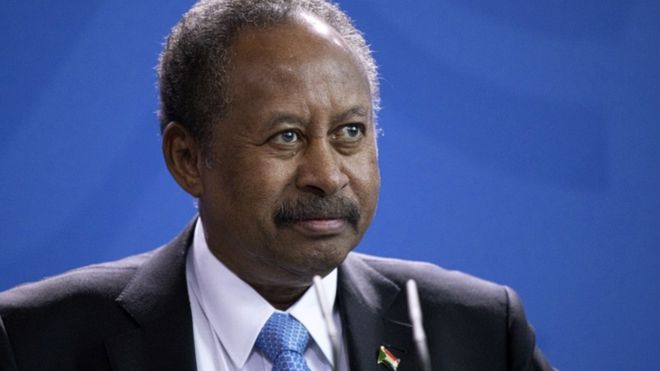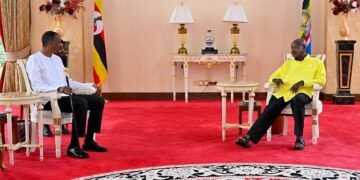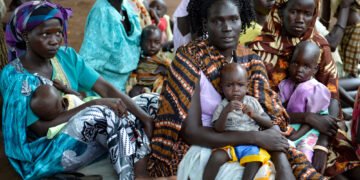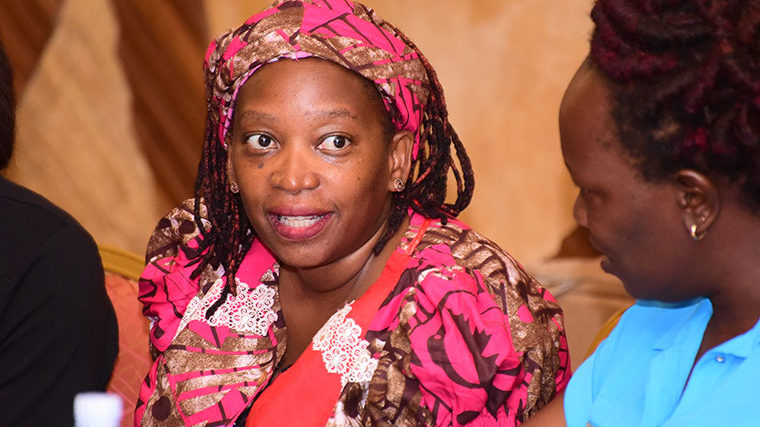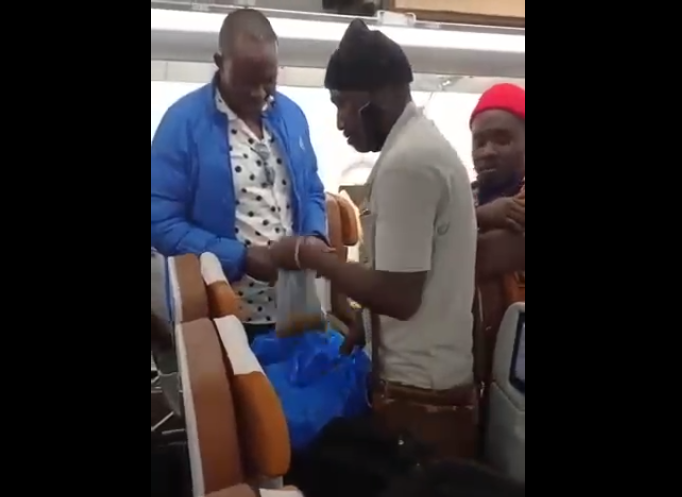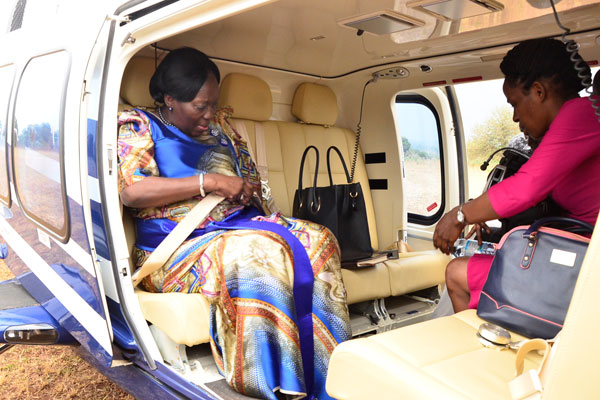Sudan’s prime minister has survived an assassination attempt after his convoy was attacked in the capital, Khartoum.
“I would like to assure the people of Sudan that I am safe and in good shape,” Abdalla Hamdok has tweeted.
Mr Hamdok was appointed to head Sudan’s transitional government last August, a few months after the overthrow of long-time President Omar al-Bashir.
He said the attack only served as “an additional push to the wheel of change in Sudan”.
It is not yet clear who carried out the attack, but the political situation in Sudan remains precarious after last year’s political transition led to many once-powerful individuals, especially in the military, being sidelined.
What happened in the attack?
Pictures on state television show several damaged vehicles at the site of the blast.
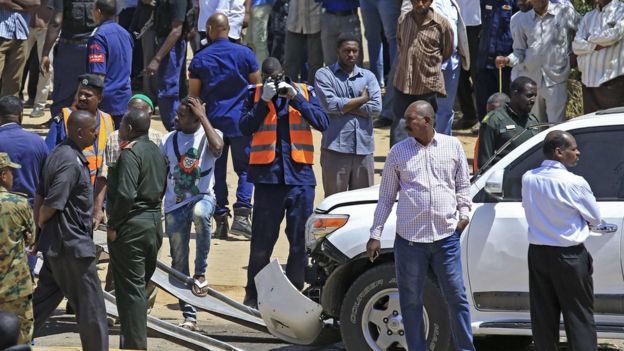
Ali Bakhit, the director of the prime minister’s officer, said in a Facebook post that no-one was hurt in the attack, the AFP news agency reports.
Witnesses told the Reuters news agency that the attack happened near the north-eastern entrance to Kober bridge, which connects Khartoum North to the city centre, where the prime minister’s office is.
“I saw the moment of the explosion and the strike, and the strike came from a high building,” one of them said.
Information Minister Faisal Salih said investigations had begun to find out who was behind what he called a “terrorist attack”.
“Terrorist attempts and dismantling the old regime will be dealt with decisively,” Reuters quoted him as saying.
Who is Mr Hamdock?
Mr Hamdok, a respected former UN economist, was appointed in August by Sudan’s Sovereign Council, which is made up of six civilians and five military officers.
The make-up of the council was the result of months of negotiations between the military and civilian protesters, who demanded that the army return to barracks after ousting Bashir in April 2019.
It is intended to lead a three-year transition to civilian rule.
According to Reuters, since the appointment of Mr Hamdok, his government has come up against resistance as it tries to implement economic reforms.
The prime minister said the attack on his motorcade would not stop the road of transition.
“We paid a hefty price for this revolution for a better tomorrow and for sustainable peace. Our revolution should always be guarded by its peacefulness,” he tweeted.
BBC Africa


